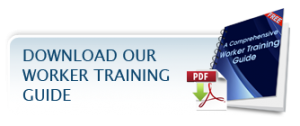In the industrial product manufacturing and assembling worlds, it is crucial to fully understand the importance of proper torque control.
And not knowing how to tighten, loosen, or measure the level of torque on fasteners, could be detrimental to your success.
The importance of torque control
Regular machine and equipment maintenance is important, and paying close attention to your torque tools is even more critical.
Why?
- If the fastener is too loose, it can vibrate or even detach and come apart completely
- If the fastener is too tight, it can break or become stripped
Wasting time tightening or loosening fasteners over and over again slows down productivity and profitability, and puts your workers’ safety at risk.
Don’t wait another minute. Improve your torque control and overall productivity by asking yourself these 6 questions.
1. What are my torque needs?
When you are inspecting and calculating your unique torque specifications, there are a few important things to consider:
- Maximum load that can be placed on the fastener
- Strength of joined materials
- Hardness and/or softness of the joint in question
How can you determine what your torque needs are? It’s simple. Using the Norwolf Calibore:
- Tighten the fastener until it reaches its failure threshold
- Repeat to validate its failure point
- Torque the joint to approximately 75% of the failure point
Once you do this, you will have a better idea of what your torque needs are.
2. Am I using the right tools?
Determining your torque needs is only half the battle, in order to have a stronger sense of your torque control, you need to use the right tools.
There are various tools available to assist in controlling and measuring torque, such as:
If you are unsure of which tools you should be using for your specific industry or situation, contact an Ultra Torq expert.
3. Have I tested my equipment with torque testers?
The quickest and easiest way to determine the correct usage of torque is by utilizing torque testers.
What do torque testers do?
- Help calibrate torque tools to reach their proper settings
- Field test whether your torque tools are maintaining settings
- Digital torque tool calibration systems save the readings of several measurements over an extended period of time
4. Have I trained my employees?
We’ve all heard the saying: “The tool is only as good as the user.” And that rings true for torquing tools and operations.
Use your time and resources to properly train and educate your employees on best practices and safety.
To get started, here is a FREE Worker Training Guide.
5. When was the last time I inspected my torque tools?
Working is important, but without functioning tools, you will be out of commission.
Take the time to regularly check your torque tools to look for damaged or defective parts and:
- Optimize tool performance
- Limit downtime
- Extend the lifetime of your tools
- Save money on repairs or replacements
6. Have I partnered with Ultra Torq yet?
Ultra Torq has over 130 man years of experience, skills, and technical know-how in the industry to help you maximize your tool performance and operation success.
We take pride in helping industries operate smoothly with properly functioning tools.
Have more questions? Contact us!
When you’re ready to improve your performance, contact Ultra Torq and speak with one of our torque tool experts.







